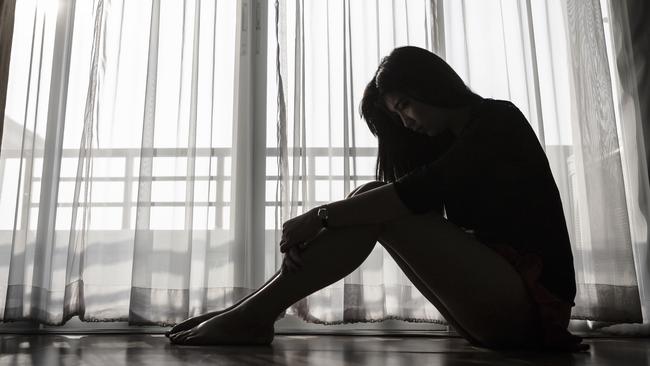Show people a way back and suicide rates will fall
SUPPORTING those who have tried to take their lives is at the heart of the fight to cut suicide rates, writes Georgie Harman.

Opinion
Don't miss out on the headlines from Opinion. Followed categories will be added to My News.
EACH year, about 1200 Australians die in circumstances that are complicated, preventable and heartbreaking. We have lost thousands in this way: sons, daughters, loved ones, workmates and friends. Each death is tragic, painful and, to many of us, very hard to comprehend.
I am talking about the national road toll. But if those references were about the suicide rate, the numbers would be much higher — almost three times higher.
The most current national statistic tells us that eight Australians take their own lives each day. As a community, we need to get serious about addressing that issue. We need to start tackling suicide in the same way we have the national road toll.
In 2015, there were 1204 road deaths and 3027 suicides. In addition, there were an estimated 65,000 suicide attempts. The last time more than 3000 people died on Australian roads was 1982.
Governments at all levels are concerned, which is why they are investing in suicide prevention, from co-ordinated support and recovery services to research and early intervention programs designed to foster good mental health and keep people connected.
Yet for many in the community, suicide remains in the shadows. It is a difficult subject, riven with misunderstandings and fraught with “what ifs?” What if I ask the wrong question? What if I make him or her more upset? What if I am putting ideas in his or her head?
Beyondblue knows that people are unsure how to raise the subject and that those who think about taking their lives often can’t find a way through the pain to ask for help. Equally, there is uncertainty about how to support those affected by suicide — those who have lost a loved one, have attempted suicide themselves or have expressed suicidal thoughts.
The facts are, all signs and talk of suicide should be taken seriously. Asking direct questions and raising concerns can help. It won’t make things worse. The beyondblue website carries practical advice about how to have a conversation about suicide.
But there is more to do. As an organisation committed to helping Australians achieve their best possible mental health, beyondblue has made suicide prevention a key priority. Australia needs a long-term plan involving a range of organisations, not only those working in mental health. The plan needs to involve all levels of government and people from all corners of the community. We need innovation and action. We need education and resolve.

In 1970, there were 3798 deaths on the country’s roads. Last year, there were 1293. In Victoria so far this year, the road toll is at 174, down from 203 last year. Now, Victorian authorities are pushing toward zero lives lost on our roads.
Every new measure has played a part — compulsory seatbelts, blood-alcohol limits, tighter speed controls, safer cars, better roads.
There are summits, plans and national forums about how to reduce those numbers further.
All of this has improved public awareness and promoted an understanding that by changing behaviour, we can halt road deaths.
Addressing suicide can be complicated, but now is the time to think big, keep the momentum rolling and embrace new ideas.
Beyondblue’s The Way Back Support Service offers an approach on what might work for those of us who are most at risk. The program is designed to provide practical support for people who have attempted suicide following their release from hospital.
We work alongside people at one of the worst times in their lives. We give the person the tools, the practical and emotional support, and motivation to stay alive. We help them stay safe and link them to community and health services, family and other support networks.
This is because we know there is a high risk that someone who has attempted to take their life is likely to try again within three months without follow-up support after leaving hospital. In fact, up to one in four people will try to take their life within three months of an attempt.
We wouldn’t discharge from hospital someone who has had a car accident without follow-up care and support. People who have attempted suicide deserve the same approach.
The Way Back Support Service operates in Darwin, parts of NSW and the ACT and has received almost 1000 referrals from participating hospitals. Five more sites around Australia will begin operating next year.
There must be more we can do as a community.
Georgie Harman is CEO of beyondblue
Those needing help can contact beyondblue or Lifeline on 13 11 14


